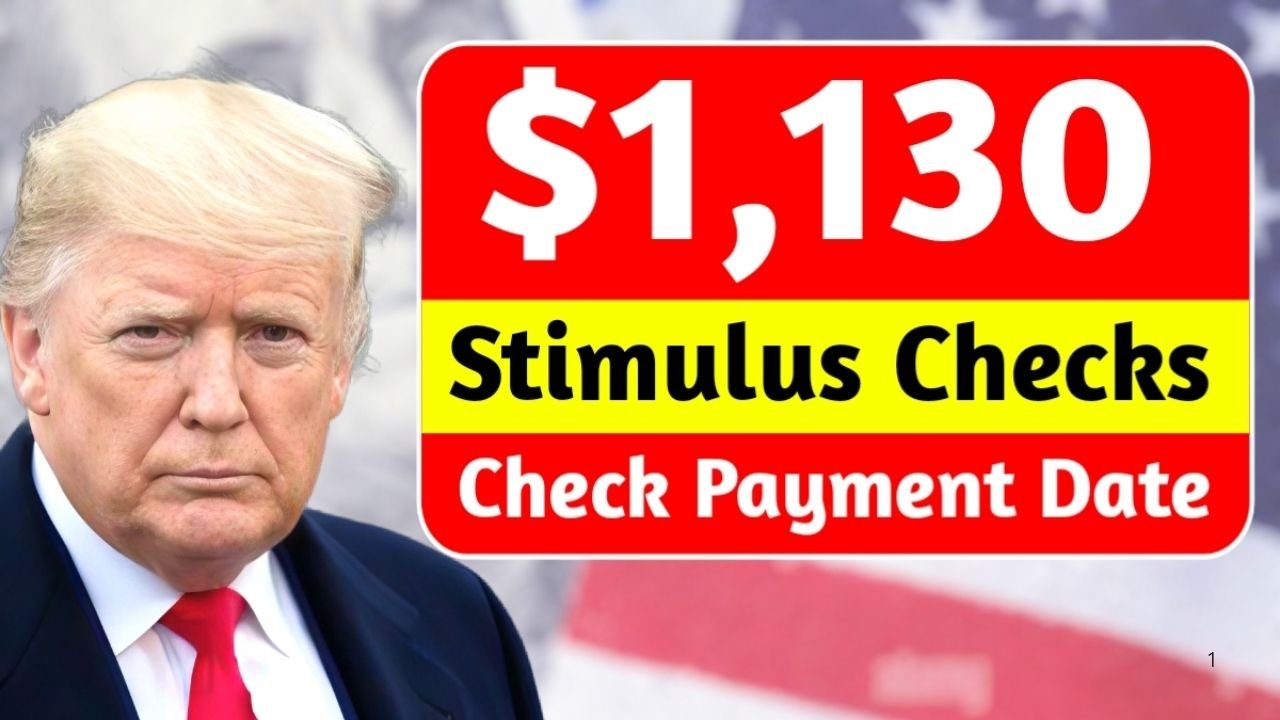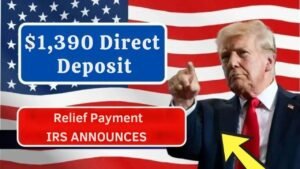Millions of Americans are closely watching for updates on the $1,130 stimulus checks expected in 2025, especially as living costs continue to rise across the country. With food, rent, medical care, and transportation expenses increasing throughout 2024–2025, many families are hoping for financial support to ease the pressure. While discussions about federal relief have grown online, staying informed about eligibility, payment dates, and official IRS updates is crucial to avoiding delays or misinformation. This guide breaks down everything you need to know in a simple and clear way.
What Are the $1,130 Stimulus Checks?
The $1,130 payment is widely discussed as a possible one-time federal relief amount designed to help households handle essential expenses. Although not officially confirmed by the IRS as of now, the payment is being compared to previous federal relief efforts aimed at supporting seniors, low-income families, and benefit recipients.
The purpose of the proposed $1,130 stimulus is to:
- Reduce short-term financial strain
- Support families dealing with rising prices
- Provide extra help ahead of the holiday and winter season
Eligibility Requirements for the $1,130 Stimulus (Expected Guidelines)
If approved, eligibility will likely follow earlier relief models. The rumored requirements include:
Basic Eligibility
- Must be a U.S. citizen or legal resident
- Must have a valid SSN or ITIN
- Should have filed a 2024 federal tax return, though some non-filers may still qualify
Expected Income Limits
| Filing Status | Maximum Income for Full Payment |
|---|---|
| Single | $75,000 |
| Married Filing Jointly | $150,000 |
| Head of Household | $112,500 |
Individuals exceeding these limits may receive a reduced amount or no payment at all. These thresholds are intended to ensure that relief goes primarily to low- and middle-income families, seniors, disabled individuals, and veterans.
Expected Payment Schedule for 2025
While the IRS has not officially announced dates, widely circulated reports suggest the following estimated timeline:
Direct Deposit Window
November 18 – December 10, 2025
People with bank details already on file with the IRS may receive their stimulus during this period.
Paper Checks
If you do not have direct deposit information registered, a paper check may be mailed. These could arrive:
- Late December 2025
- Possibly early January 2026 depending on USPS delays
Federal Benefit Recipients
Those receiving SSA, SSI, SSDI, VA, or RRB benefits may get their payments using existing deposit information, which could lead to faster processing.
How to Update Your IRS Information
To prevent delays or lost payments, you must ensure your IRS records are accurate.
Steps to Update Securely
- Confirm your direct deposit details on your most recent tax return
- Update your mailing address if you moved
- Review your personal information (SSN, ITIN, date of birth)
- Use the IRS’s secure online tools once the new tracking portal becomes active
Keeping your information current reduces the chance of receiving a check instead of a direct deposit, which can add weeks of delay.
Beware of Scams Related to Stimulus Payments
Scammers often take advantage of new federal payment announcements. It’s important to remember:
- The IRS never calls, texts, or emails to ask for bank or personal information
- Do not click on suspicious links or share private details
- Only trust updates from IRS.gov or official government websites
If someone contacts you claiming they can “help release your stimulus,” it is a scam.
Why the $1,130 Stimulus Matters
For many Americans, a one-time relief payment can provide real financial breathing room. As inflation affects everything from groceries to utilities, this support could help:
- Seniors living on fixed incomes
- Working families managing monthly bills
- Veterans and disabled individuals handling medical costs
- Low-income households struggling with rising rent and food prices
The timing, close to winter and the holiday season, makes the payment especially meaningful.
FAQs
1. Is the $1,130 stimulus officially approved?
No. As of now, it is widely discussed but not officially confirmed by the IRS.
2. Who is expected to qualify?
U.S. citizens or legal residents with valid SSNs/ITINs who fall under the income limits.
3. Will I need to apply?
Most payments will likely be automatic, especially for tax filers and benefit recipients.
4. How will payments be sent?
Through direct deposit, paper checks, or existing federal benefit accounts.
5. Where can I track my payment?
Once available, the IRS will activate an online tracking tool similar to “Get My Payment.”
Conclusion
The potential $1,130 stimulus checks for 2025 offer hope for millions facing rising costs. While not confirmed yet, understanding the expected eligibility rules and staying updated through official channels will help you avoid delays, errors, or scams. Prepare early by verifying your IRS information and keeping an eye on IRS.gov for official announcements. When relief becomes available, being ready ensures you receive it smoothly and without stress.





